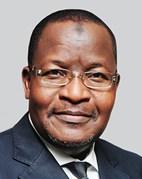Women are marginalized on education, internet use – CITAD
By Patience Michael, Bauchi
The Executive Director, Centre for Information Technology and Development (CITAD), Ya’u Zakari Ya’u, has said that women were marginalized with less access to education and use of Internet.
The director, who was speaking at a workshop in Bauchi tagged, “Research Findings on Women and Use of Internet in the North,’’ said aspects of marginalization including the very few in decision-making process like those in the state and national legislatures.
His words: “So if they have less access to education, they would continue to be excluded in economic life, political life and in every other spheres of life, and as the saying goes, educate a man you educate one person, and educate a women you educate the whole nationâ€.
Zakari stressed the need for taking all necessary measures to ensure that women have access to internet and the skills to use it.
He said however that there were many other categories of people that were left behind including people with disabilities who do not have access to our educational processes because we are not able to make the necessary investment for the provision of their required learning tools.
“Even older people are also excluded, but they are excluded because perhaps they have become static in their own learning process and is so difficult now to learn new skills, new knowledge,” he said.
According to Zakari, internet is being used for research, learning, access to knowledge and communication adding, “And now we have seen examinations are gradually migrating online, JAMB examination is now computer base and increasingly more and more examinations will migrate online.â€
Accordingly, he said that a person who lacks the internet skills would be left out in the pursuit of education, stressing that internet is also a tool for personal empowerment.
“If education is a right and internet is the major tool, then access to internet should also be a right to everybody.
Zakari explained that a lot of people earn their living on internet either as squatted creators, data miners, and people who promote business or uses internet as a platform to conduct businesses.
According to him, no business one can today do without accessing the internet as even the crack sellers realize that with internet they create greater market.
“As a communication tool we know that it is a platform for participation. Democracy itself is about participation, ability to contribute in decision making process, about our lives, society and about how our society is govern or how we elect our representatives,” he said.
Zakari noted that for us to live meaningful, productive and politically engaged life, we need to have access to internet, hence internet gives universal access to men and women, young and old that no one should be left behind.
http://nigerianewsflight.com/article/women-are-marginalized-education-internet-use-%E2%80%93-ciad







